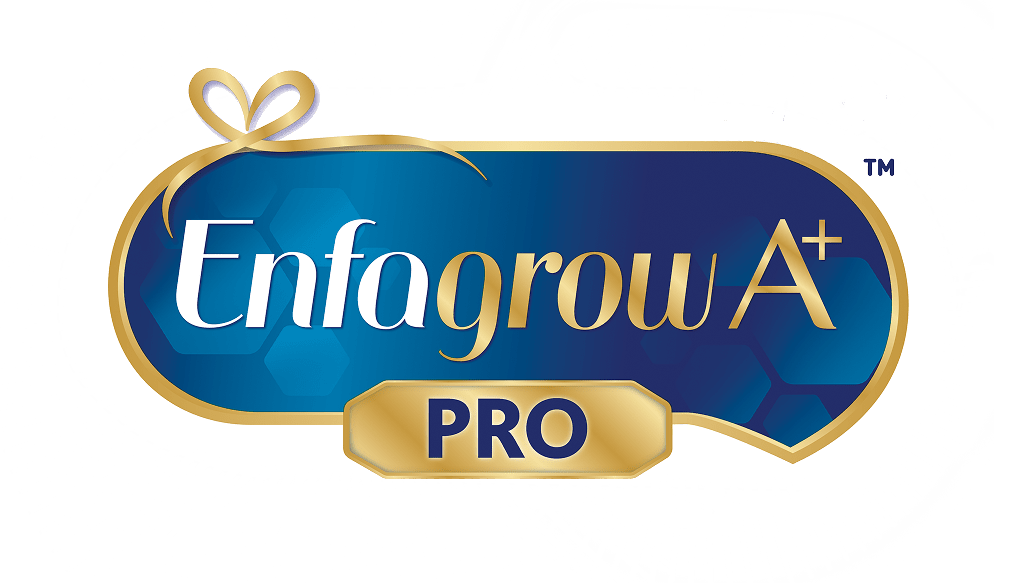Pregnancy isn’t just about the miraculous growth of your baby -- it’s also about the incredible baby brain development that is going on at the same time. That’s why pregnancy nutrition is of utmost importance during this critical phase. Let’s take a closer look at the cognitive development journey your baby goes through during these months.
Baby brain development happens at an incredible rate during your pregnancy. At four weeks in utero, your baby’s brain is not much bigger than a grain of salt, and at seven weeks, it barely measures a quarter inch. But fast-forward to the final trimester and your developing baby’s brain has increased in size by 260 percent!
Most of this baby brain development can be attributed to the rapid formation, growth, and proliferation of brain cells. A child is born with 100 billion neurons forming connections with one another and creating an elaborate messaging network that scientists consider the most complex biological system in the world. Here’s a deeper look at the brain development that you can’t see but can appreciate.
Baby Brain Development: Cognitive Development
Baby brain development technically begins during the third week of your pregnancy, when rapidly multiplying cells form what’s called the neural plate. This structure eventually folds in on itself to become the neural tube, which later gives rise to the forebrain, midbrain, hindbrain, and spinal cord. As early as five weeks after conception, neurons — the information-processing cells that pass signals throughout the central nervous system — begin to form, divide, and multiply in these regions of your developing baby’s brain.
The most active period of baby brain development takes place during the middle of the second trimester, when 250,000 neurons are created every minute. The neurons begin to migrate to different regions of your developing baby’s brain, where they take on specific roles, such as interpreting sounds and storing memories, and form connections with other neurons - leading up to the sixth month of pregnancy.
During this time of heightened baby brain development, the cerebral cortex — the area associated with the brain’s higher functions, such as language and abstract thought — grows more rapidly than the brain’s other structures. By the seventh month of your pregnancy, it houses 70 percent of the neurons in your developing baby’s brain.
By the eighth month, the auditory cortex, the visual cortex, and Broca’s area (a region of the brain associated with producing speech) begin to function, lending your developing baby a primitive ability to interpret sights and sounds and to distinguish language -- the beginnings of cognitive development.
Baby Brain Development: Motor Skills
Your child is equipped for physical survival. Even before birth, their brains and nerves are developed to the point that they can control basic reflexes and vital functions like breathing, swallowing, and sleeping. As you may have noticed, physical reflexes begin to develop during early pregnancy, when your developing baby becomes capable of reacting to stimuli by moving his arms and kicking his legs. This is fairly apparent during your baby’s rapid physical and mental development in the sixth month of pregnancy.
In the seventh month, a process called myelination begins in which a dense, fat-based substance forms along the connections between neurons, allowing signals to pass between them with increasing speed. Among the first neurons to undergo myelination are those located in the brain regions responsible for motor development—the brainstem and spinal cord—and they’ll be the most fully developed by then.
Interestingly, even while your developing baby is in the womb, external stimuli can play a significant role in baby brain development, particularly when it comes to reflexes. By week 16, developing ears allow your unborn child to detect (though not interpret) sound. And by week 25, your unborn child is likely to respond to sounds outside the womb, such as music or your voice, by kicking or moving around. With each kick and movement, certain neurons are exercised, which encourages them to form even more connections. That, in turn, strengthens overall motor function and gradually allows for the more coordinated, complex, and deliberate movements you’ll see during your child's early years.
Enfamama A+ Club is here for you and your developing baby. Get expert advice and more when you join the club. Sign up now!




